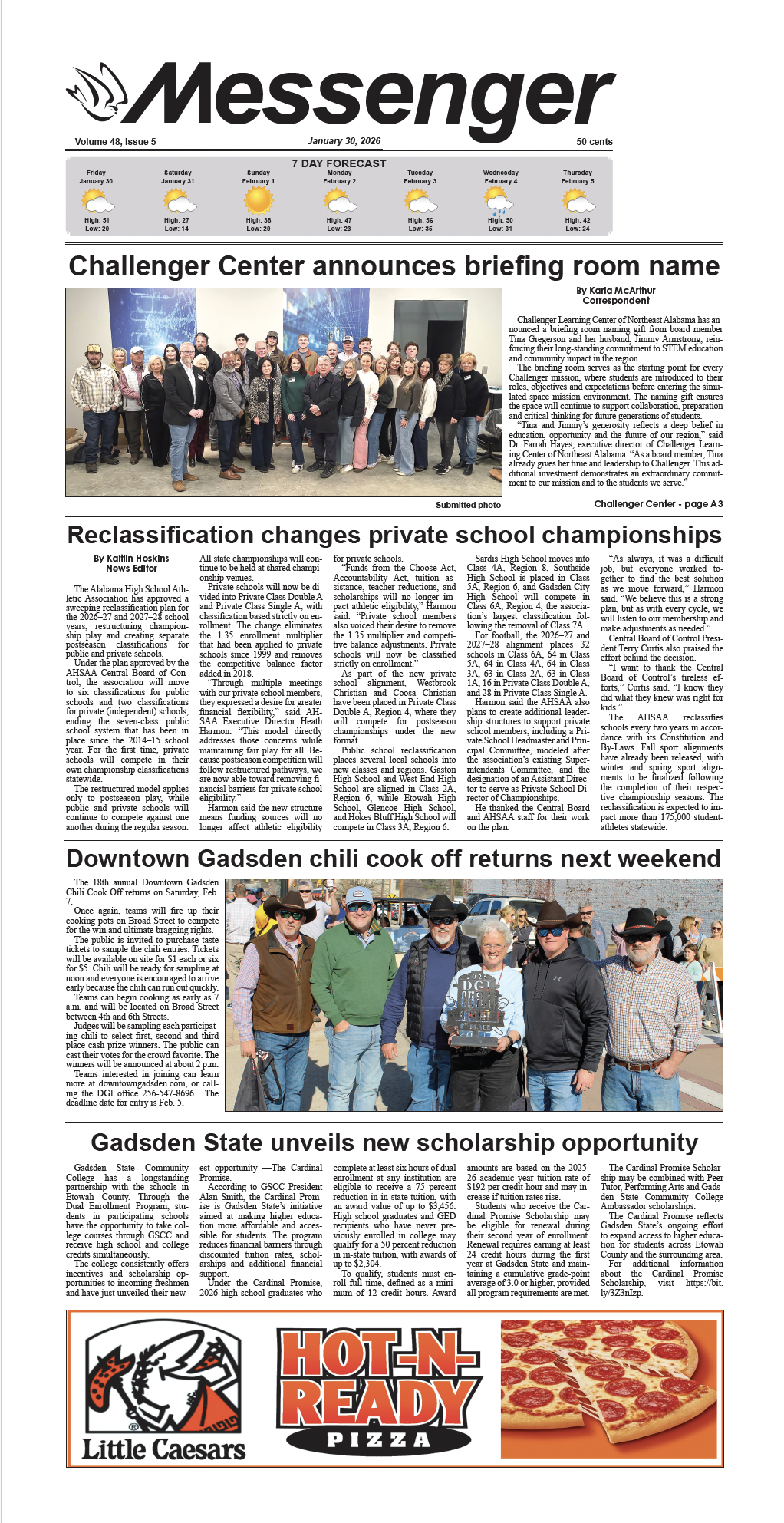Since 2008, education spending for K-12 in Alabama has gone down by more than 20 percent. Those cuts have been felt in every classroom in the state, from outdated textbooks and technology to larger class sizes.
But this year, the state has an opportunity to invest in education again instead of cutting it.
This year, the state of Alabama has brought in $140 million more money earmarked for education than we spent. But instead of that money going into our schools where it belongs, that money is going into a rainy day savings account created by the Rolling Reserve Act. This is not the Alabama Trust Fund, but a second savings account.
The Rolling Reserve Act was meant to be a tool to prevent proration. But for every year that it has been the law, state leaders have found ways to go around it. They go around it because they know that we don’t need two rainy day savings accounts. We especially don’t need to be putting $140 million into it, when that money could be better spent on our children’s education.
I think one of the best things we could do with that $140 million would be to expand the state’s pre-k program.
As of right now, only 12,400 children in Alabama are able to participate in a pre-k program. A relatively low number, when you consider that 80 percent of eligible children are not able to participate.
According to the Legislative Fiscal Office, for $144 million dollars, the state would have the ability to offer pre-k to the 39,000 children – that’s nearly triple the amount of children currently enrolled.
According to the Alabama Department of Early Childhood Education, if it were available to them, 39,000 children would participate in this key stepping stone of their academic lives. That seems like a no-brainer to me. We have $140 million sitting in a secondary savings account, and we need only $4 million more to put every 4-year-old in Alabama in pre-k.
If we want to fix failing schools and improve students’ test scores, pre-k should be the first step. Studies have shown that pre-k programs better equip children overall for not only academic success.
According to the Center for Public Education, studies show that children in pre-k programs showed significant cognitive gains over students who didn’t attend pre-k. In Georgia, children who attended the program overcame achievement gaps they previously faced before enrolling in pre-k by the time they finished kindergarten.
But the benefits of pre-k aren’t just visible in childhood. The Center for Public Education reports findings that, among children from low-income families, 60 percent who attended a pre-k program made over $20,000 per year by age 40; 65 percent graduated high school and 27 percent owned a home before age 27. They also were less likely to be arrested for violent crime, and more likely to be employed.
It’s not just the children in the programs themselves that stand to benefit from expanding pre-k in Alabama. Local economies would also see immediate job creation for teachers and support staff. With the availability of pre-k, more families can return to two-income households and free up money to be spent back into the communities they live in.
Additionally, women who made the choice to stay home while their children were young to save on daycare costs would have the opportunity to reenter the workforce earlier.
There’s no reason why we can’t bring these benefits to Alabama. We need to repeal the Rolling Reserve Act (which legislators have never lived by, anyway) and use the money to expand our pre-k program instead of putting it in a secondary savings account. We wouldn’t have to pay any new taxes because we’ve already paid these taxes.
So instead of letting the money just sit in the bank, let’s invest in our children’s futures. It’s time to reverse our trend of cutting education and start investing in our children once again.
Craig Ford is a Democrat from Gadsden and the Minority Leader in the Alabama House of Representatives.




